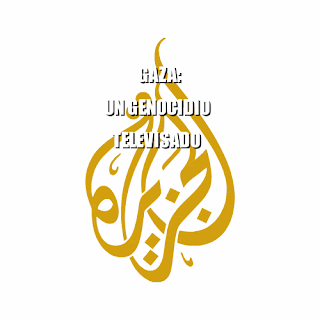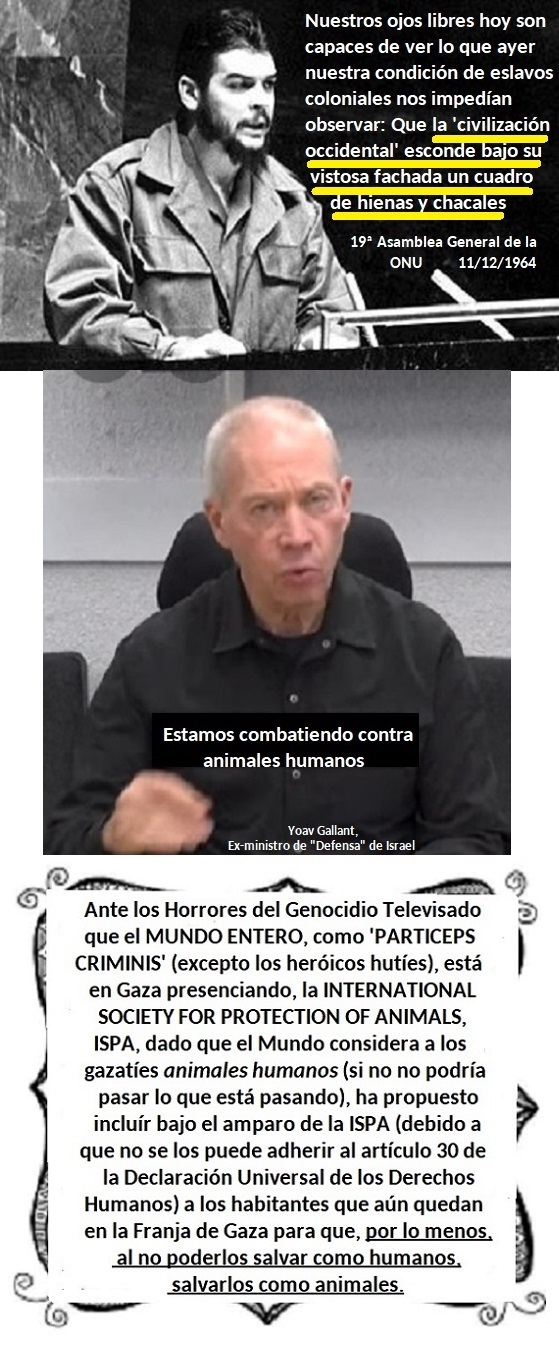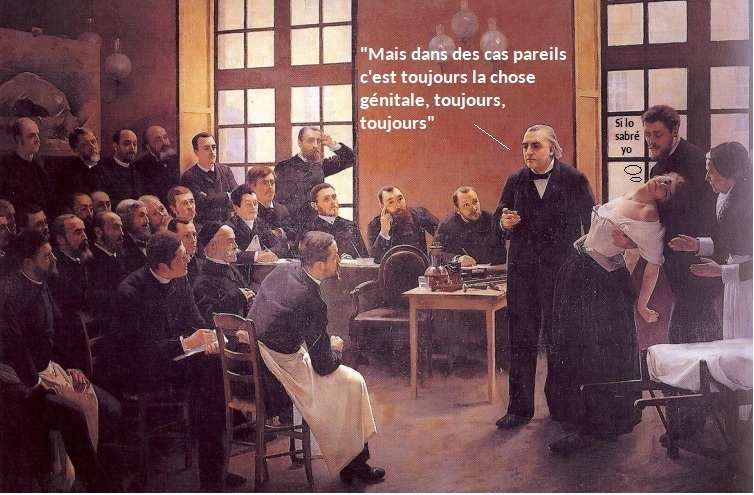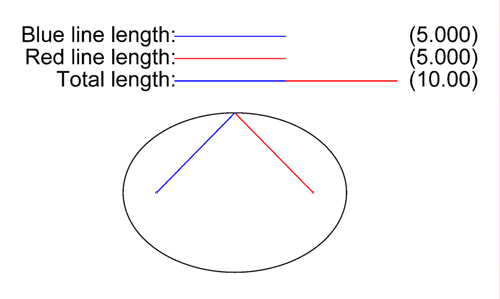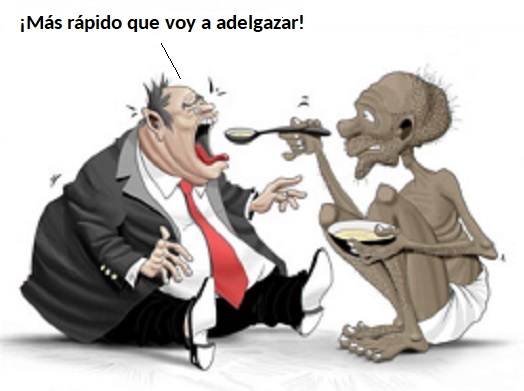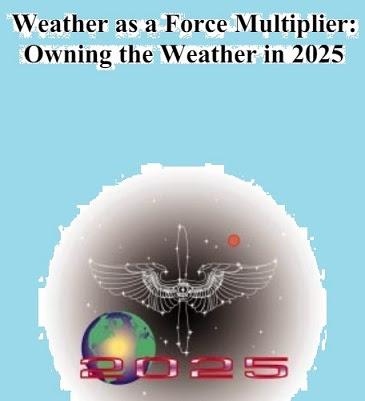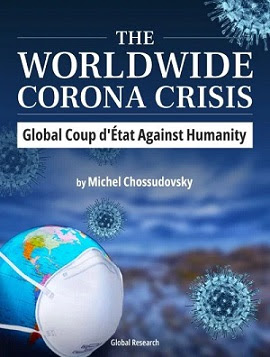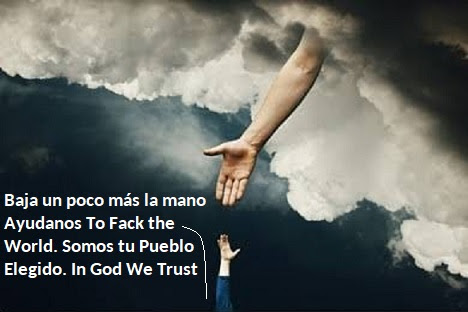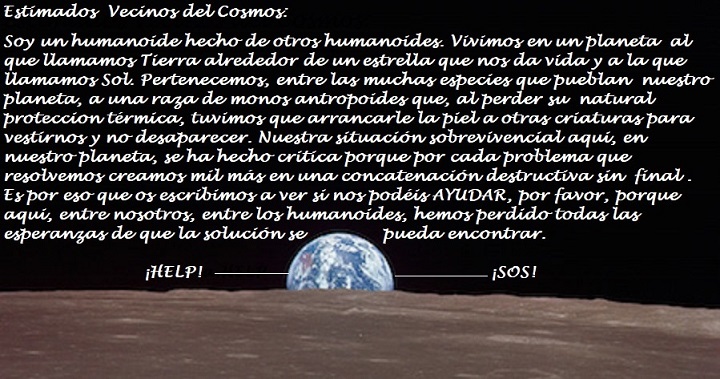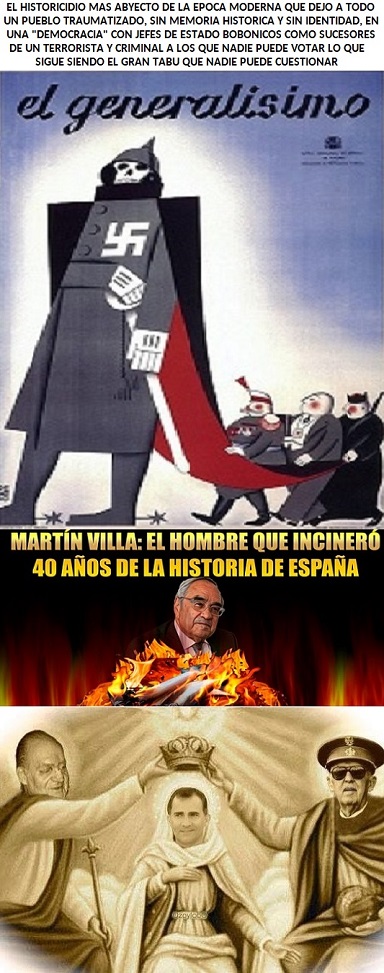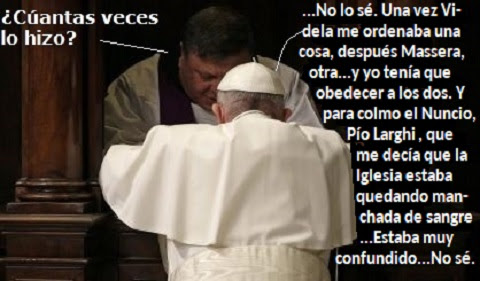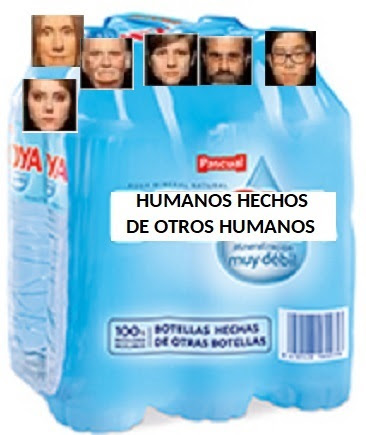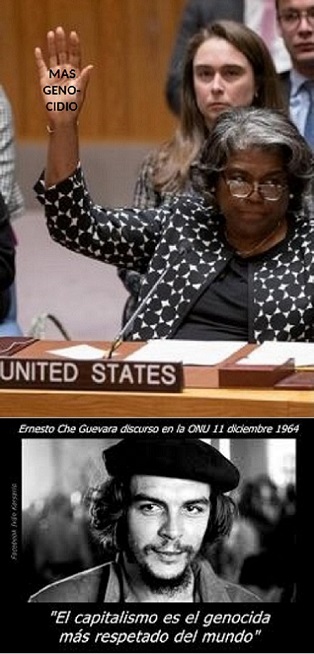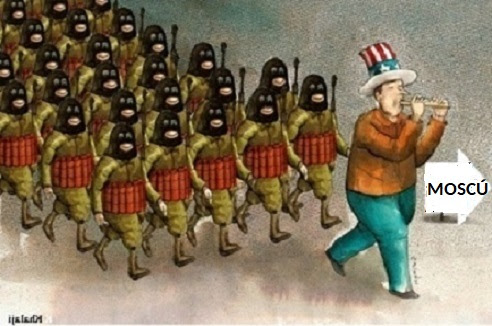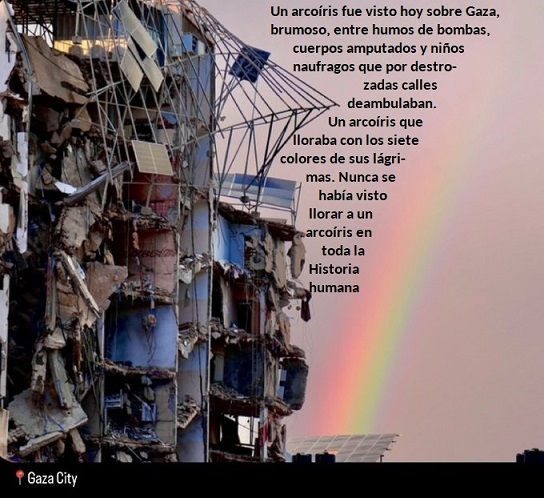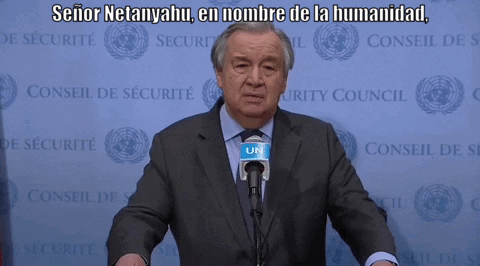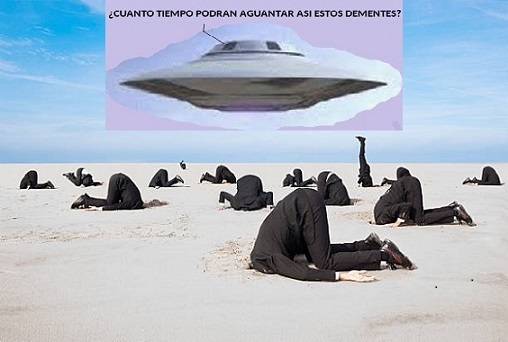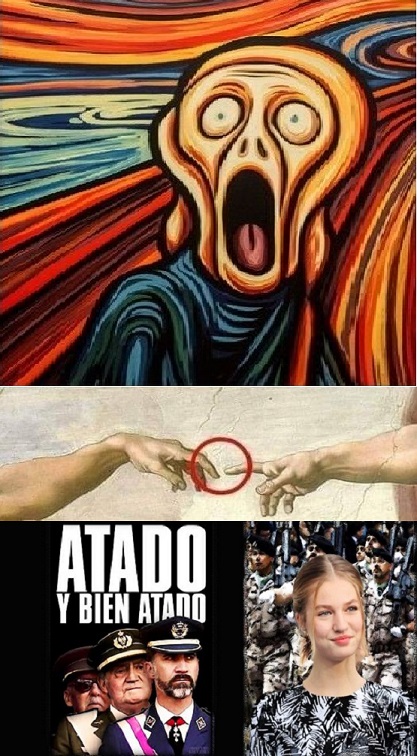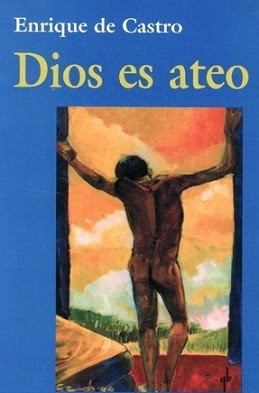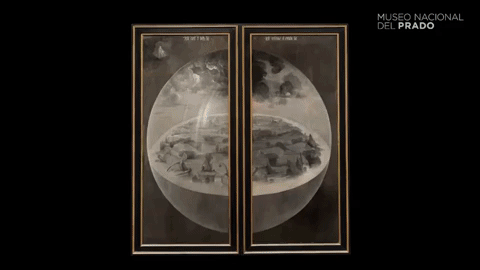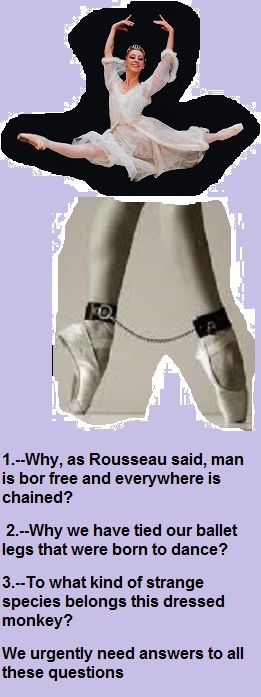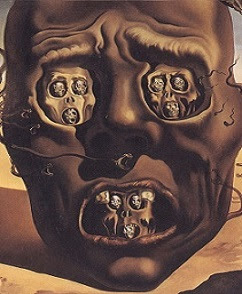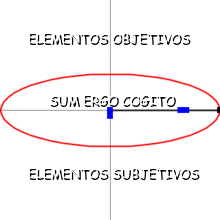The Murder of Christ
The Emotional Plague of Mankind
Wilhelm Reich
INTRODUCTION
The social crisis we are living through is basically due to the inability of people in general to govern their own lives. From this inability cruel dictatorships have grown over the past thirty years, with no rational social ends at all. Serious men and women everywhere are deeply concerned with the misfortune which is threatening to extinguish our lives, our happiness, and cause disaster to our children. These men and women want blunt truth. They want blunt truth about people’s true ways of being, acting and emotional reacting. To tell the people everywhere the full truth about themselves, means paying respect to their social responsibilities. The problems presented in THE MURDER OF CHRIST are acute problems of present-day society. However, the solutions to these problems, given in THE MURDER OF CHRIST are immature, emotionally blurred, insufficient or lacking completeness. Therefore, THE MURDER OF CHRIST is being published only as historical source material from the Archives of the Orgone Institute. The Oranur Experiment, beginning 1947, has unexpectedly provided some basic solutions to emotional and social problems of man, solutions which have been entirely inaccessible heretofore. An extensive publication of the emotional implications of the Oranur Experiment is in preparation. THE MURDER OF CHRIST may well serve as an introduction of biographical background material to Oranur. “God” is Nature, and Christ is the realization of Natural Law. God (Nature) has created the genital organs in all living beings. He has done so for them to function according to natural, godly law. Therefore, to ascribe a natural, godly love life to the messenger of God on earth is no sacrilege, no blasphemy. It is, on the contrary, the rooting of God in man’s cleanest depth. This depth is there from the very beginning of life. Propagation is only added to genitality in puberty. Godly genital love is there long before the function of propagation; therefore, the genital embrace was not created by Nature and God only for the purpose of propagation.
Orgonon, November 3rd, 1952
Chapter I
LA TRAMPA
Only a very few slip
out of the trap
in the dark night
when everybody is asleep.
(Por eso a nosotros
nos gusta la madrugada,
cuándo los demás duermen
y no vigilan ni la salida
ni la entrada)
"Man is born free; and everywhere he is in chains. One thinks himself the master of others, and still remains a greater slave than they. How did this change come about? I do not know"
Jean Jacques Rousseau asked this question in the very beginning of his “Social Contract” some two hundred years ago. Unless the answer is found to this basic question, there is little use in setting up new social contracts.
There has for many ages been something at work within human society that rendered impotent any and every single attempt to get at the solution of the great riddle, well known to all great leaders of humanity during the past several thousands of years: Man is born free, yet he goes through life as slave.
No answer has been found till now. There must be something at work in human society that obstructs the asking of the correct question to reach the right answer.
All human philosophy is riddled with the nightmare of searching in vain. Something, well hidden, is at work, that does not permit posing the right question. There is, accordingly, something in operation that continuously and successfully diverts attention from the carefully camouflaged access to where attention should be focused.
The tool used by the well-camouflaged something to divert attention from the cardinal riddle itself, is human EVASIVENESS with regard to living Life. The hidden something is THE EMOTIONAL PLAGUE OF MAN.
On the correct formulation of the riddle will depend the proper focusing of attention, and on this in turn will depend the eventual finding of the correct answer as to how it is possible that man is born free everywhere and yet finds himself in slavery everywhere.
Certainly, social contracts, if honestly designed to maintain life in human society, are crucial tasks. But no kind of social contract will ever solve the problem of human agony. The social contract, at best, is no more than a makeshift to maintain life. It has heretofore not been able to remove the agony of life.
These are the constituents of the great riddle:
Man is born equal, but he does not grow equal.
Man has created great teachings, yet each simple teaching has served his oppression.
Man is the “Son of God,” created in His image; yet man is “sinful,” a prey of the “Devil.” How can the Devil and Sin be, if God alone is the creator of all being?
Humanity has failed to answer the question as to how there can be EVIL if a perfect GOD has created and governs the world and man.
Humanity has failed in establishing a moral life in accordance with its creator. Humanity has been ravaged by war and murder of all sorts ever since the inception of written history. No attempt to remove this plague has ever succeeded.
Humanity has developed many kinds of religions. Every single kind of religion turned into another way of suppression and misery. Humanity has devised many systems of thought to cope with Nature. Yet nature, is functional and not mechanical, as it really is, has slipped through the fingers.
Humanity has run after every bit of hope and knowledge. Yet, after three thousand years of search and worry and heartbreak and murder for heresy and persecution of seeming error, it has arrived at little more than a few comforts for a small sector of humanity, at automobiles and airplanes and refrigerators and radios.
After thousands of years of concentration upon the riddle of the nature of man, humanity finds itself exactly where it started: with the confession of utter ignorance. The mother is still helpless in the face of a nightmare which harrasses her child. And the physician is still helpless in the face of such a small thing as a running nose.
It is commonly agreed that science reveals no permanent truth. Newton’s mechanical universe does not fit the real universe which is not mechanical but functional. Copernicus’ world picture of “perfect” circles is wrong. Kepler’s elliptical paths of the planets are nonexistent. Mathematics did not turn out to be what it soconfidently promised to be. Space is not empty; and nobody has ever seen atoms or the airgerms of amebas. It is not true that chemistry can approach the problem of living matter, and the hormones did not keep their promises either. The repressed unconscious, supposedly the last word in psychology, turns out to be an artifact of a brief period of civilization of a mechano-mystical type.
Mind and body, functioning in one and the same organism, are still separated in man’s thinking. Perfectly exact physics is not so very exact, just as holy men are not so very holy. Finding more
stars or comets or galaxies won’t do it. Neither will more mathematical formulas accomplish it.
Philosophizing about the meaning of Life is useless as long as one does not know what Life is. And, since “God” is Life, which is certain, immediate knowledge common to all men, there is little use in searching or serving God if one
does not know what one serves.
Everything seems to point to one single fact: There is something basically and crucially wrong in the whole setup of man’s procedure of learning to know himself.
The mechano-rationalistic view has completely broken down. Locke and Hume and Kant and Hegel and Marx and Spencer and Spengler and Freud and all the others were truly great thinkers, but somehow it left the world empty after all and the mass of mankind remained untouched by all the philosophical digging.
Modesty in proclaiming truth won’t do it, either. It is often no more than a subterfuge for hiding one’s evasion of the crucial point. Aristotle, who
governed thinking for many centuries, turned out to be wrong, and little can be done with Plato’s or Socrates’ wisdom. Epicurus did not succeed and neither did a single saint.
The temptation to join the Catholic point of view is great after the deleterious experience of the latest great effort of humanity, made in Russia, to come to grips with its fate. The devastating effect of such attempts has revealed itself too drastically. Wherever we turn we find man running around in circles as if trapped and searching the exit in vain and in desperation.
It IS possible to get out of a trap. However, in order to break out of a prison, one first must confess to being in a prison. The trap is man’s emotional structure, his character structure.
There is little use in devising systems of thought about the nature of the trap if the only thing to do in order to get out of the trap is to know the trap and to find the exit. Everything else is utterly useless: Singing hymns about the suffering in the trap, as the enslaved Negro does; or making poems about the beauty of freedom outside of the trap, dreamed of within the trap; or promising a life outside the trap after death, as Catholicism promises its congregations; or confessing a semper ignorabimus as do the resigned philosophers; or building a philosophic system around the despair of life within the trap, as did Schopenhauer; or dreaming up a superman who would be so much different from the man in the trap, as Nietzsche did, until, trapped in a lunatic asylum, he wrote, finally, the full truth about himself — too late.
The first thing to do is to find the exit out of the trap. The nature of the trap has no interest whatsoever beyond this one crucial point: WHERE IS THE EXIT OUT OF THE TRAP?
One can decorate a trap to make life more comfortable in it. This is done by the
Michelangelos and the Shakespeares and the Goethes. One can invent makeshift contraptions to secure longer life in the trap. This is done by the great scientists and physicians, the Meyers and the Pasteurs and the Flemings. One can devise great art in healing broken bones when one falls into the trap.
But the crucial point still is and remains: to find the exit out of the trap. WHERE IS THE EXIT INTO THE ENDLESS OPEN SPACE?
The exit remains hidden.
It is the greatest riddle of all.
The most ridiculous as well as tragic thing is this: THE EXIT IS CLEARLY VISIBLE TO ALL TRAPPED IN THE HOLE. YET NOBODY SEEMS TO SEE IT. EVERYBODY KNOWS WHERE THE EXIT IS. YET NOBODY SEEMS TO MAKE A MOVE TOWARD IT. MORE: WHOEVER MOVES TOWARD THE EXIT, OR WHOEVER POINTS TOWARD IT IS DECLARED CRAZY OR A CRIMINAL OR A SINNER TO BURN IN HELL.
It turns out that the trouble is not with the trap or even with finding the exit. The trouble is WITHIN THE TRAPPED ONES.
All this is, seen from outside the trap, incomprehensible to a simple mind. It is even insane. Why don’t they see and move toward the clearly visible exit? As soon as they get close to the exit they start screaming and run away from it. As soon as anyone among them tries to get out, they kill him. Only a very few slip out of the trap in the dark night when everybody is asleep.
This is the situation in which Jesus Christ finds himself. And this is the behaviour of the victims in the trap when they will kill him. The functioning of living Life is all around us, within us, in our senses, before our noses, clearly visible in every single animal or tree or flower.
We feel it in our bodies and in our blood. Yet it remained for the trapped ones the greatest, most inaccessible riddle of all. However, Life was not the riddle. The riddle is how it could have remained unsolved for such a long period of time.
The great problem of biogenesis and bioenergetics is easily accessible by direct observation. The great problem of Life and the origin of Life is a psychiatric one; it is a problem of the character structure of Man who succeeded so long in evading its solution. The cancer scourge is not the big problem it seems to be. The problem is the character structure of the cancer pathologists who in so masterly a way have obfuscated it. It is the BASIC EVASION OF THE ESSENTIAL which is the problem of man.
This evasionand evasiveness is a part of the deep structure of man. The running away from the exit out of the trap is the result of this structure of man. Man fears and hates the exit from the trap. He guards cruelly against any attempt at finding the exit.
This is thegreat riddle. All this certainly sounds crazy to the living beings in the trap. It would mean certain death for the speaker of such crazy things if he were within the trap together with them; if he were a member of a scientific academy which spends much time and money on studying the details of the walls of the trap. Or, if he were a member of a church congregation which prays, in resignation or hope, to get out of the trap. Or if he were the provider for a family whose only concern is not to starve in the trap. Or if he were an employee of an industrial concern which does its best to make life in the trap as comfortable as possible. It would mean death in one form or another: by ostracism, or by being jailed for the violation of some law, or, under appropriate conditions, the electric chair. Criminals are people who find the exit from the trap and rush toward it, with violence toward the fellow man in the trap. Lunatics who rot away in institutions and are made to twitch, like witches in the middle ages, by way of electric shock, are also trapped men who saw the exit but could not overcome the common horror of approaching it.
Outside the trap, right close by, is living Life, all around one, in everything the eye can see and the ear can hear and the nose can smell. To the victims within the trap it is eternal agony, a temptation as for Tantalus. You see it, you feel it, you smell it, you eternally long for it, yet you can never, never get through the exit out of the trap.
To get out of the trap simply has become an impossibility. It can only be had in dreams and in poems and in great music and paintings, but it is no longer in your motility. The keys to the exit are cemented into your own character armor and into the mechanical rigidity of your body and soul.
This is the great tragedy. And Christ happened to know it. If you live in a dark cellar too long, you will hate the sunshine. You may even have lost the power of the eye to tolerate light. From this comes hate toward sunlight.
The living beings in the trap, in order to adjust their offspring to the life in the trap, develop elaborate techniques to keep life going on a tight, low level. There is not space enough in the trap for great swings of thought or action.
Every move isrestricted on all sides. This has, in the long run of time, had the effect of crippling the very organs of living Life. The sense of a full life itself has gone from the creatures in the trap.
Still, a deep longing for happiness in life and a memory of a happy Life long past, before the entrapment, has remained. But longing and memory cannot be lived in real life. Therefore, hatred of Life has grown from this tightness.
Let us subsume all manifestations of this hatred against the Living under the heading “MURDER OF CHRIST.” Jesus Christ had fallen prey to the Hatred of the Living on the part of his contemporaries. His tragic fate offers itself as a lesson in what our future generations will encounter when they will reestablish the laws of Life. Their fundamental task will be coping with human malignancy (“Sin”). As we search along this trail, trying to get a glimpse of future possibilities, good and bad, Christ’s story acquires a tragic significance.
The secret of why Jesus Christ had to die still stands unsolved. We shall experience this tragedy of two thousand years ago, which had such tremendous effects upon the destiny of mankind, as a logical necessity within the domain of armored man. The true issue of the murder of Christ has remained untouched over a period of two thousand years, in spite of the countless books, studies, examinations and investigations of this murder.
The riddle of the murder of Christ has remained hidden within a domain entirely removed from the vision and thought of many diligent men and women; and this very fact is a part of the secret. The murder of Christ represents a riddle which harrassed human existence at least over the whole period of written history. It is THE problem of the armored human character structure, and not of Christ alone. Christ became a victim of this human character structure because he had developed the qualities and manners of conduct which act upon the armored character structure like red color upon the emotional system of a wild bull.
Thus, we may say that Christ presents the principle of Life per se. The form was determined by the epoch of Jewish culture under Roman rule.
It is of little importance whether the murder of Christ occurred in 3000 B.C. or 2000 A.D. Christ would certainly have been murdered at any time and in any culture if the conditions of the clash between the life principle (OR) and the emotional plague (EP) had been socially given in a manner similar to what they were in the old Palestine of Christ’s time.
It is a basic characteristic of the murder of the Living by the human armored animal, that it is camouflaged in many ways and forms. The superstructure of human social existence, such as economics, warfare, irrational political movements and social organizations which serve the suppression of Life, are drowning out the basic tragedy that besets the human animal, in a flood of what we may call rationalizations, cover-ups, evasions of the true issue; in addition to all this, it can rely on a perfectly logical and coherent rationality which is valid only within the framework of law versus crime, state versus people, morals versus sex, civilization versus nature, police versus criminal and so forth all along and down the line of human misery. There is no chance whatsoever to ever penetrate through this mire unless one has put oneself outside the holocaust and has made oneself inaccessible to the big noise.
We are hurrying to assure the reader that we do not consider this noise and empty busyness as merely irrational, as nothing but aimless and senseless activity. It is a crucial characteristic of the tragedy that this nonsense is valid, meaningful and necessary, though only within its own realm and under certain given conditions of human conduct. But here the plague irrationality rests on sound rock bottom.
Even the silence which engulfed the orgasm function, the life function, the murder of Christ and similar crucial issues of human existence for millennia makes good sense to the prudent student of human behaviour.
The human race would meet with the worst, most devastating disaster if it obtained full knowledge of the Life function, of the orgasm function or of the secret of the murder of Christ with one stroke as a whole. There is very good reason and a sound rationality in the fact that the human race has refused to acknowledge the depth and the true dynamics of its chronic misery.
(Quiere decir ésto que qué suerte que el hombre es el Gran Tabú para él mismo, que haya rehusado conocerse asi mismo...de lo contrario se hubiese llevado un gran susto)
Such a sudden breaking-in of knowledge would incapacitate and destroy everything that still somehow keeps human society going in spite of wars, famine, emotional mass killing, infant misery, etc. It would amount to insanity to initiate such major projects as “Children of the Future” or “World Citizenship” without comprehending how it was possible that all this misery went on for millennia unabated, unrecognized, unchallenged; that not a single one of the many brilliant attempts at clarification and relief was successful; that with every step toward the fulfillment of the great dream, the misery only deepened and got worse; that not a single religious creed succeeded in realizing its objectives in spite of the best of intentions; that every single great deed turned into a menace to humanity, as for instance, socialism and brotherhood which became statism and oppression of man of the worst sort.
(Respecto a la última línea, tendríamos que introducir al respecto un interrogante, ciertas dudas que podrían venir expresadas en una imagen analógica en la cual se le cortan a alguien las piernas para después acusarlo de que no puede andar. ¿No sucede ésto con el socialismo? Es decir: la supervivencia y sostenibilidad de Algo también está en función del poder de los enemigos que enfrenta. La Historia no es solamente lo que ocurre, sino también lo que se impide que ocurra para que lo que ocurre pueda ocurrir. Es la indispensable dialéctica enjuiciadora)
In short, to consider such serious projects without first looking around and learning what murdered humanity for ages, would be criminal. It would only add more misery to the existent one. At present, thorough investigation of the murder of Christ is far more important than the most beautiful children we may be able to raise.
Every hope of ever breaking through the mire of educational misery would be lost forever, irretrievably, if this new and so hopeful attempt at a new type of raising infants would bog down and turn into its very opposite, as have all former hopeful tasks ever set up by human souls.
And let there be no mistake about it: The reshaping of the human character structure through a radical change in the total aspect and practice of raising children, deals with Life itself. The deepest emotions the human animal can ever reach far outdistance any other function of existence in scope, depth and
fatefulness. Also, the ensuing misery would be correspondingly deeper and greater if this crucial attempt would fail and degenerate.
There is nothing more devastating than Life which was irritated and thwarted by frustrated hope. Let us never forget this.
We cannot possibly try to work out this problem in a perfect, academic, detailed fashion. We can do no more than scan the territory to see where treasures are hidden for possible future use, where wild animals are roaming the countryside, where hidden traps are set to kill the invader, and how it all works. We do not wish to get bogged down in our own impatience, in our own daily routine, or even in interests which have nothing whatsoever to do with the problem of education.
At a meeting of orgonomic educators several years ago, the fact was mentioned that education is a problem for the next few centuries. It appeared most likely that the first few generations of Children of the Future will not be able to withstand the manifold impacts of the emotional plague. They would certainly have to yield here and there; we do not know exactly in what way. But there is hope that slowly a general awareness of Life would develop in these newtype children and would spread over the whole human community.
The educator who makes a profitable business out of education would not be interested in education if he believed this were so. Let us beware of this type of educator. The educator of the future will do systematically (not mechanically) what every good, true educator does today: He will feel the qualities of living Life in the child, he will recognize its specific qualities and promote their development to the fullest.
As long as the social trend remains what it is to such an overpowering extent today, i.e., directed against these inborn qualities of living emotional expression, the true educator will have a double task: He will have to know the natural emotional expressions as they vary with each child, and he will have to learn how to handle the close and the remote social environment as it steps up against these alive qualities.
Only in some distant future, when such conscious upbringing of children will have straightened out the severe contradiction of culture and nature, when man’s bio-energetic and social living will no longer oppose each other, but will support, supplement, and enhance each other — only then will this task lose its dangerousness.
We must be prepared that this process will be slow, painful, and that it will require much sacrifice. Many victims will be lost to the emotional plague. Our next task is to outline the basic, typical characteristics of the clash between the inborn, highly variable emotional expressions of the infant and those qualities in the mechanized, armored human structure which will generally and specifically hate and fight these qualities.
Regardless of the innumerable variations in human conduct, character analysis has so far succeeded in outlining basic patterns and lawful sequences in human reactions. It has done so extensively with regard to the neuroses and psychoses.
We shall not attempt to do the same with regard to the typical dynamics of the emotional plague. Specific descriptions of the individual plague reactions will have to be done amply in order to equip the educator and physician with the necessary detailed knowledge.
In the Christian world and the cultures directly or indirectly influenced by Christianity, a contradiction between “sinful man” and his “God” is sharply pronounced.
Man was born in the “likeness of God!” He is encouraged to become “godlike.” Yet, he is “sinful.” How is it possible that “sin” came into this world if it was created by “God?” In his actual behaviour, man comprises both the godlike and the sinful. The “godlike” was there first, then “sin” broke into his existence. The conflict between the ideal of God and the reality of sin derives from a catastrophe which turned the godly into the devilish. This is true for his past social history as well as for the development of every single child ever since a mechano-mystical civilization has begun to drown out the “godlike” qualities in man.
Man derives from paradise and he keeps longing for paradise. Man has somehow emerged from the universe and he yearns to return to it. These are factual realities if we learn to read the language of his emotional expressions. Man is basically good, but he is also a brute. The change from good to “brutish” actually happens in every single child. God is, therefore, INSIDE man, and not to be sought for outside alone. The Kingdom of Heaven is the Kingdom of the inner grace and goodness, and not the mystical “beyond” with angels and devils into which the brute in the human animal has turned its lost paradise.
The cruel persecutor and murderer of Christ, Saul of Tarsus, had clearly, but in vain, distinguished between the “BODY,” which was god-given and good, and the “FLESH,” which was devil-ridden and bad, to be burned at the stake one thousand years later when he turned Paul, the church builder, himself. In the distinction between the “body” and the “flesh” in early Christianity, our present orgonomic distinction between the “primary,” naturally inborn drives (“God”), and the “secondary,” perverted, evil drives (“Devil,” “Sin”) was anticipated. Thus mankind was always somehow aware of its crucial biological plight, of its natural endowment as well as of its biological degeneration.
In the Christian ideology, the sharp antithesis of “GOD” (spiritualized body) and “DEVIL” (body degenerated to flesh), this tragedy is plainly known and expressed. In real man, the “god-given” genital embrace has turned into the pornographic 4-lettering male-female intercourse.
ORIGINAL SIN — A MYSTERY
("Freud interpretaba el religioso concepto de la caída de la gracia para lo cual Cristo vino a salvar el mundo como una expresión de un prehistórico acto de asesinato. Por otro lado, el mito bíblico de Adan y Eva, como también la ideología del hereditario pecado original, se revelan básicamente como transgression sexual acompañada por un acto de asesinato". 'Sex-pol, Essays, 1929-1934', Wilhelm Reich; pags. 221-222. Solo hay que deducir unas solas líneas reflexivas y correspondientes corolarios para inferir el acoplamiento que todo ello tiene con la monografía de Oscar Kiss Maerth)
Life is plastic; it adjusts to every condition of its existence with or without protests, with or without deformation, with or without revolt. This plasticity of living Life, one of its greatest assets, will be one of its slave chains when the Emotional Plague will learn to misuse the plasticity of Life to its own ends. One and the same Life is different at the bottom of the deep sea, and different on a high mountainridge. It is different in the dark cave and different again within the blood vessel. It was different in the Garden of Eden, and different in the trap that caught humanity.
Life knows nothing of traps in the Garden of Eden; it just lives paradise, innocently, gayly, without an inkling of a different kind of life. It would refuse to listen to an account of life in the trap; and, if it listened, it would comprehend it with its “brain” only, not with its heart. Life in paradise is fully adapted to the conditions in paradise.
Within the trap, Life lives the life of souls caught in a trap. It adjusts quickly and completely to the Life in a trap. This adjustment goes so far that nothing will remain beyond a faint memory of Life in paradise, once Life has been caught in a trap. Restlessness, hurry, nervousness, a dim longing, a dream long past — yet, still around somehow — will be taken for granted. No trace of an inkling that these are signs of a dim memory of Life in paradise long past will disturb the peace of soul of the captives. The adjustment is complete. It reaches proportions beyond the limits of reason. The Life in the trap will soon become completely self-absorbed as Life in a prison is supposed to be.
Certain character types will develop which will belong to Life in the trap, and would not make sense where Life walks the world freely. These characters, molded by bearing Life in prison, will greatly vary among themselves.
They will disagree and fight each other. They will, each in his own manner, proclaim the absolute truth. Only ONE characteristic will they all have in common: They will join together and kill in unison whoever will dare to ask the basic question: “HOW IN THE NAME OF A MERCIFUL GOD DID WE EVER MANAGE TO GET INTO THE UGLY PREDICAMENT OF THIS NIGHTMARE OF A TRAP???” WHY DID MAN LOSE PARADISE?; and WHAT DID HE ACTUALLY LOSE WHEN HE FELL VICTIM TO SIN?
Man in the trap has, over the millenia, created a great book: the BIBLE. This book is the story of his fights and anguishes and glories and hopes and longings and sufferings and sinnings in the entrapment. It has been thought and written in many languages by many different people.
Some of its basic features can be found in places far apart, in the written and unwritten memory of man. That things had, once upon a time long past, been quite different, that somehow man once had fallen to the devil, to sin and ugliness, is common to all accounts of the distant past.
The bibles of the world are the accounts of man’s fight against man’s sin. There is so much the Bible tells about the life in the trap, and so little about how men got into the trap. It is obvious that the exit out of the trap is exactly the same as the entrance into the trap, through which they were driven from paradise.
Now, why does nobody say anything about it except in a very few paragraphs which are as one to a million to the rest of the Bible, and in a veiled language which is meant to conceal the meaning of the words?
(¿Que hubiése pensado Reich si hubiéra podido leer la interpretación de Oscar Kiss Maerth sobre el Génesis bíblico que viene a continuación?)
The downfall of Adam and Eve is obviously, beyond any doubt due to something they did against the Laws of God in a genital way:
“And they were both naked, the man and his wife, and were not ashamed.”
(Genesis 2: 25)
From this it follows that in paradise man and woman were not aware or ashamed of nakedness, and this was God’s will, and the way of Life.
Now, what happened?
The Bible says (Genesis 3: 1-24): Now the serpent was more subtil than any beast of the field which the Lord God hath made. And he said unto the woman, Yea, hath God said, Ye shall not eat of every tree of the garden?
And the woman said unto the serpent, We may eat of the fruit of the trees of the garden. But of the fruit of the tree which is in the midst of the garden, God hath said, Ye shall not eat of it, neither shall ye touch it, lest ye die. And the serpent said unto the woman, Ye shall not surely die:
'For God doth know that in the day ye eat thereof, then your eyes shall be opened, and ye shall be as gods, knowing good and evil'
And when the woman saw that the tree was good for food, and that it was pleasant to the eyes, and a tree to be desired to make one wise, she took of the fruit thereof, and did eat, and gave also unto her husband with her; and he did eat.
And the eyes of them both were opened, and they knew that they were naked; and they sewed fig leaves together, and made themselves aprons.
And they heard the voice of the Lord God walking in the garden in the cool of the day: and Adam and his wife hid themselves from the presence of the Lord God amongst the trees of the garden.
And the Lord God called unto Adam, and said unto him, Where art thou? And he said, I heard thy voice in the garden, and I was afraid, because I was naked; and I hid myself.
And he said, Who told thee that thou wast naked? Hast thou eaten of the tree, whereof I commanded thee that thou shouldest not eat?
And the man said, The woman whom thou gavest to be with me, she gave me of the tree, and I did eat.
And the Lord God said unto the woman, What is that that thou hast done? And the woman said, The serpent beguiled me, and I did eat.
And the Lord God said unto the serpent, Because thou hast done this, thou art cursed above all cattle, and above every beast of the field; upon thy belly shalt thou go, and dust shalt thou eat all the days of thy life:
And I will put enmity between thee and the woman, and between thy seed and her seed; it shall bruise thy head, and thou shalt bruise his heel.
Unto the woman he said, I will greatly multiply thy sorrow and thy conception; in sorrow thou shalt bring forth children; and thy desire shall be to thy husband, and he shall rule over thee.
And unto Adam he said, Because thou hast hearkened unto the voice of thy wife, and hast eaten of the tree, of which I commanded thee, saying, Thou shalt not eat of it: cursed is the ground for thy sake; in sorrow shalt thou eat of it all the days of thy life; thorns also and thistles shall it bring forth to thee; and thou shalt eat the herb of the field. In the sweat of thy face shalt thou eat bread, till thou return unto the ground; for out of it wast thou taken: for dust thou art, and unto dust shalt thou return.
And Adam called his wife’s name Eve; because she was the mother of all living.
Unto Adam also and to his wife did the Lord God make coats of skins, and clothed them.
And the Lord God said, Behold, the man is become as one of us, to know good and evil: and now, lest he put forth his hand, and take also of the tree of life, and eat, and live for ever: therefore the Lord God sent him forth from the garden of Eden, to till the ground from whence he was taken.
So he drove out the man; and he placed at the east of the garden of Eden Cherubims, and a flaming sword which turned every way, to keep the way of the tree of life.
There was a serpent in paradise “more subtil than any beast of the field whichthe Lord God had made.” To the Christian commentator, the serpent, in his Edenic form, is not to be thought of as a writhing reptile. The serpent originally was “the most beautiful and subtle of creatures.”
Traces of that beauty remain despite the (later) curse. Every movement of the serpent is graceful, and many species are beautifully colored. In the serpent, Satan first appeared as an angel of light.
The serpent, thus, is a symbol of Life itself and the male phallus. Then, somehow, out of nowhere as it were, disaster strikes. Nobody knows or has ever known or ever will find out how and why it happened: The most beautiful serpent, the “Angel of Light,” the “most subtle of creatures,” “less than man,” is cursed and becomes “God’s illustration in nature of the effect of sin”: it changes from “the most beautiful and subtle of creatures to a loathsome reptile.”
And, as if a special counsel had met to veil the most dramatic, the most devilish, the most disastrous happening in the history of the human race, and to remove it forever and ever from any grasp by intellect or heart, this catastrophe became mysterious and untouchable; it becomes a part of the great mystery of the entrapment of man; it doubtless contains the solution to the riddle as to why man in the trap refuses to simply walk out of the trap using the exit through which he had come into the trap.
(Oscar Kiss ha tratado de responder a ese gran misterio con una cierta coherencia lógica)
The Biblical interpreter himself says at this point: “The deepest mystery of the atonement is intimated here,” i.e., in the change of the serpent from the “most beautiful and subtle of creatures to a loathsome reptile.”
Why all this?
Let’s hear.
There was a peculiar tree in the Garden of Eden, and God had said to man in paradise: “Ye shall not eat of every tree of the garden.” And the woman said unto the serpent, We may cat of the fruit of the trees of the garden. But of the fruit of the tree which is in the midst of the garden, God hath said, Ye shall not eat of it, neither shall ye touch it, lest ye die.
(Genesis 3: 2,3)
Did anyone ever in the course of six thousand years explain that tree? No one ever did so. Why? The mystery of this tree is a part of the mystery of man’s entrapment.
A solution of the mystery of the tree could possibly answer the predicament why man is in the trap. The solution of the mystery of the forbidden tree would certainly point to the entrance to the trap, which, used the other way around, would become an exit out of the trap.
Accordingly, no one ever thought of solving the riddle of the forbidden tree, and everybody in the trap was busy for millenia to scholasticize, talmudize and exorcise the predicament of being within the trap, using millions of books and myriads of words, with one single goal in mind: To prevent the solution of the riddle of the forbidden tree.
("El Principio Era el Fín", Oscar Kiss Maerth, ayuda a entender the riddle of the forbidden tree)
The serpent, still beautiful and subtle, knew better. “And the serpent said unto the woman, Ye shall not surely die: For God doth know that in the day ye eat thereof, then your eyes shall be opened, and ye shall be as gods, knowing good and evil.”
Now, since the beautiful serpent thus brought about man’s downfall, what in the name of sanity does all this mean: If man in paradise, living happily the ways of God, eats from a certain tree, then he will be like God, his eyes will be opened, and he will “know good and evil.”
How does such a devilish tree manage to get into God’s garden in the first place? And if you eat from such a tree which bears the fruit of knowledge and you become like God himself, why then do you lose paradise?
The Bible, to my knowledge, doesn’t tell. And it is to be doubted that anyone ever asked such a question.
(Apple computer has the unswer: a bite apple)
The legend doesn’t seem to make sense: If the tree is a tree of knowledge, to know the difference between good and evil, what’s bad, then, in eating of its fruits? If you eat of its fruits, then you certainly can follow God’s ways better, and not worse.
Again, it doesn’t make sense. Or is it forbidden to know God and to be like God, which means to live God’s ways, even in paradise? Or is all this the cooked-up fantasy of man in the trap, regarding a faint memory of a past life outside the trap? It doesn’t make sense.
(El sentido que tiene es el de la ocultación. Todo lo que subrepticiamente se oculta aparenta no tener sentido)
Man is haunted all through the ages by the request to know God, to follow God’s Ways, to live God’s love and life; and when he starts seriously to do so by eating from the tree of knowledge, he is punished, expelled from paradise, and condemned to eternal misery.
It simply does not make sense, and we fear that no representative of God on earth has ever asked this question, or even dared to think in its direction.
And when the woman saw that the tree was good for food, and that it was pleasant to the eyes, andma tree to be desired to make one wise, she took of the fruit thereof, and did eat, and gave also unto her husband with her and he did eat. And the eyes of them both were opened, and they knew that they were naked; and they sewed fig leaves together, and made themselves aprons.
(Genesis 3: 6,7)
When man thus was first trapped, confusion beclouded his mind. He did not understand why he got into the trap. He felt he must have done something wrong, but he knew not what wrong he had done.
He had not felt ashamed being naked, and then, suddenly, he felt ashamed of his genital organs. He had eaten from the tree of forbidden “knowledge,” which, in Biblical language means, he “knew” Eve, he embraced her genitally. For this now he has been expelled from the Garden of Eden. God’s own most beautiful serpent had seduced them; the symbol of wavy, living Life and of the male sexual organ had seduced them.
From here to the life in the trap there is a wide, deep gap in comprehension. In its adjustment to the life in the trap, Life developed new forms and means of existence; forms and means which were unnecessary in the Garden of Eden, but were crucial for life in the trap.
A silent and suffering and dreaming and toiling mass of humanity, cut off from God’s Life, provided the broad foundation on which grew priests, and the prophets against the priests; the kings, and the rebels against the kings; the great healers of man’s misery within the trap, and with them the great quacks and the medical “authorities”, the traumaturgists and the occultists.
With the emperors there came about the freedom peddlers, and with the great organizers of man in the trap were born the political prostitutes, the Barabbases and the sneaking vermin of bandwagon riders; Sin and Crime against the law, and the judges of Sin and Crime and their executioners; the suppression of liberties unlivable in a trap, and the Unions for Civil Liberties within the trap.
Also, from the mire grew great political bodies called “parties,” designed either to keep up what they called the “status quo” within the trap, the so-called “conservatives” (since they tried to preserve the law and order which had been established to keep life in the trap going), and, opposing them, the so-called “progressives” who fought and suffered and died at the gallows for advocating more freedom within the trap.
Here and there such progressives conquered power over the conservatives and began to establish “Freedom in the Trap” or “BREAD AND FREEDOM in the Trap.”
But, since there was no one who could “give” the broad herd of men bread and freedom, since they had to work for it, the progressives soon became conservatives themselves, for they had to maintain law and order just as their eternal enemies, the conservatives, had done before.
Later, a new party arose which thought that the masses of suffering humanity in the trap should rule Life in the trap, and not the priests or kings or dukes. They tried hard to get the mass of people on their legs and into action; but apart from a few murders and the destruction of the homes of some rich men in the trap, little happened.
(Tremendous assertion against the working class in the trap. Y es que lo que aqui ocurre es que Reich --¿sin saberlo?-- entra en un conundrum epistemológico: es decir: no semantíza en su correcto sentido que la intención de la clase trabajadora, los MAS jodidos en la trampa, es la de traer JUSTICIA a la trampa, y no la de salir de ella, porque salir, encontrar la salida, es IMPOSIBLE --no nos engañemos--; porque no podemos dejar de ser lo que somos: humanos, que quiere decir: haber adquirido, por evolución artificial, una cabeza --todas las pistas apuntan al canibalismo de cerebros-- que no corresponde con el cuerpo dónde está porque testa y corpus evolucionaron sobre parámetros distintos.
Lucien Malson, en "Wolf Children and the Problem of Human Nature", lo deja aclarado: "Children deprived too early of all social contact --those known as feral or 'wolf' children-- become so stunted in their solitude that their behaviour comes to resemble that of the lower animals. Rather than a state of nature in which one can detect a rudimentary homo sapiens or homo faber, one discovers instead a condition of such abnormality that to understand it one needs not psychology, but teratology." (...) "Even when isolated from birth, animals retain quite clearly recognizable instincts, whatever other damage they may suffer in the process, and when a domesticated animal returns to the wild its old instincts reassert themselves. Nothing like this, says Levi-Strauss, could happen in the case of human beings because 'the species has no natural behaviour to which an isolated individual might retrogress'. Deprived of the society of others man becomes a monster."
En esa sociedad que nos hace creyó Reich, con su "Children of the Future", encontrar una futura salida de la trampa mediante una adecuada y sana educaión de los niños del futuro, pero, ¿quíen educaría a los educadores?
Esto es como una aporía de Zenon: no tiene salida, y menos en la OMNIPRESENTE, tecnologiquísima y barbárica trampa en la que estamos metidos cuya única y exclusiva alternativa es tratar de traer a ella una cierta JUSTICIA, que es, precisamente, a lo que se oponen, con todas sus fuerzas, los AMOS de la trampa. Porque la trampa, como todas las cosas, también tiene sus PROPIETARIOS, aúnque la inmensa mayoría de los entrampados, por necesidad, cobardía, complicidad, ventajas pragmáticas o elementos patógenos y miserables, colaboremos con ELLOS)
The broad mass of humanity just repeated what it had heard and seen from above for millenia, and nothing changed; only the misery became greater when a very clever party was formed which promised to humanity a “PEOPLE’S FREEDOM IN THE TRAP” and brought about hell here and there by using all the old and outoutworn slogans formerly used by the kings and the dukes and the tyrants.
The people’s freedom parties had, to begin with, until their designs were found out, great success. Their slogan of a “PEOPLE’S” freedom in the trap, and when they obtained power over a little area they were stunned to find how easy it is to push buttons and to see police, armies, diplomats, judges, academic scientists and representatives of foreign powers act according to brief, sharp pulls and pushes on neat buttons.
The little freedom peddlers liked that game of push-button-power so much, that they forgot all about “PEOPLE’S FREEDOM IN THE TRAP” and just enjoyed themselves pushing buttons whenever they could in the palaces of the old rulers whom they had murdered. They just went power drunk with joy of pushing buttons on the tables of power machines. But they did not last long and were soon replaced by good, old, decent power-button-pushers, the good, old conservatives who had retained some decency and bearing in their souls as a fading memory from the days of paradise.
They all fought and quarreled with each other, pushed each other here and there, killed their adversaries with or without the law; briefly, they gave a true picture of man’s Sin and the fulfillment of the curse in the Garden of Eden.
The mass of entrapped humanity did not really partake in this holocaust of plagueridden Life in the Trap. From among two billion human souls, no more than a few thousand partook in the turmoil. The rest just suffered, dreamed and waited...for WHAT?
The redeemer, or for something unheard of to happen to free them; for delivery of their souls from the trap called the body; for reunification with the great world soul or for hell. But dreaming, toiling and waiting were the main occupations of the broad herd of humanity far removed from the political turmoil.
There was also great dying in the great wars within the trap, with enemies changing from year to year like people cashing money at a banking counter. It did not matter much, though it hurt. The mass of suffering humanity was waiting for delivery from this sinful life, anyhow, and the few noisemakers did not really amount to much, seen in the perspective of Life or “God” in the Universe.
And God’s Life was born in billions of infants everywhere in the trap, but it was killed right away by the people in the trap who either did not recognize God’s Life in their infants, or were frightened to death at the sight of living, moving, decent, simple Life.
And so it came about that man perpetuated his entrapment. These infants, if left to themselves as God had created them, would certainly have found the exit from the trap. But this was not allowed to happen. It was particularly forbidden during the reign of “THE PEOPLE’S” freedom in the trap. All loyalty had to be for the trap, and not for the babies, under punishment of death by the “Great Leader and Friend of All the Entrapped Ones.”
:::::::::::::::::::::::::::::::::
PD:
Antes de terminar queremos volver a Rousseau
sobre la primera parte de su fundamental aforismo que nunca es cuestionada:
¿Nace realmente el hombre siendo libre?
Esta es la pregunta omitida.
Y sólo hay una forma efectiva de saberlo:
separando el hombre al nacer del hombre,
de su cultura,
de su sociedad,
para observarlo in vacuum
y asi poder ver realmente qué es como producto evolutivo en el cual aún no ha intervenido
la manufactura cultural de su especie.
Y la sorpresa es mayúscula y trágica
Ya Linneus clasificaba de "homo ferus"
o hombre silvestre a éstos casos.
Y la documentación de los estudios al respecto
atestigua el cuento de que el hombre nazca libre
El hombre que crece sin contacto humano
es, simplemente, un caso teratológico
como enfatiza Lucien Malson --ya citado--:
"Rather than a state of nature in which one can detect a rudimentary 'homo sapiens or homo faber', one discovers instead a condition of such abnormality that to understand it one needs not psychology, but teratology".
En todo caso, y ya parodiando a Rousseau:
el hombre nace teratológicamente libre.
Ahora entendemos la confusión
generada al respecto.
Y de aqui que si se es criado por una gacela
seamos una gacela,
criado por un lobo
seamos un lobo,
criado por un humano,
seamos un humano.
(Las demás criaturas que comparten
con nosotros el planeta,
las críe quíen las críe, son ellas mismas;
podran carecer de ciertas herramientas
que se mimetizan en el aprendizaje,
si, pero son ellas mismas)
Y todo ello es debido a que al perder el habla,
la comunicación --el habla no se ha obtenido mediante un proceso volutivo natural
porque si no estaría interiorizada en nosotros
como lo está en todas las demás especies--,
perdemos nuestro pensamiento
y quedamos convertidos
en lo que nos dice Lucien Malson.
Hemos creído necesario arrojar cierta luz
sobre lo tremebundo de decir que nacemos libres
(lo de que en todas partes estamos encadenados
es de perogrullo, claro),
pues ello genera mucha distorsión
NOTAS
--La letra de color rojo son nuestros comentarios
--Hay un cierto desarreglo de espacios
y de continuación de ringlones
No lo he podido solucionar.
Asi que ahi va...























































































































